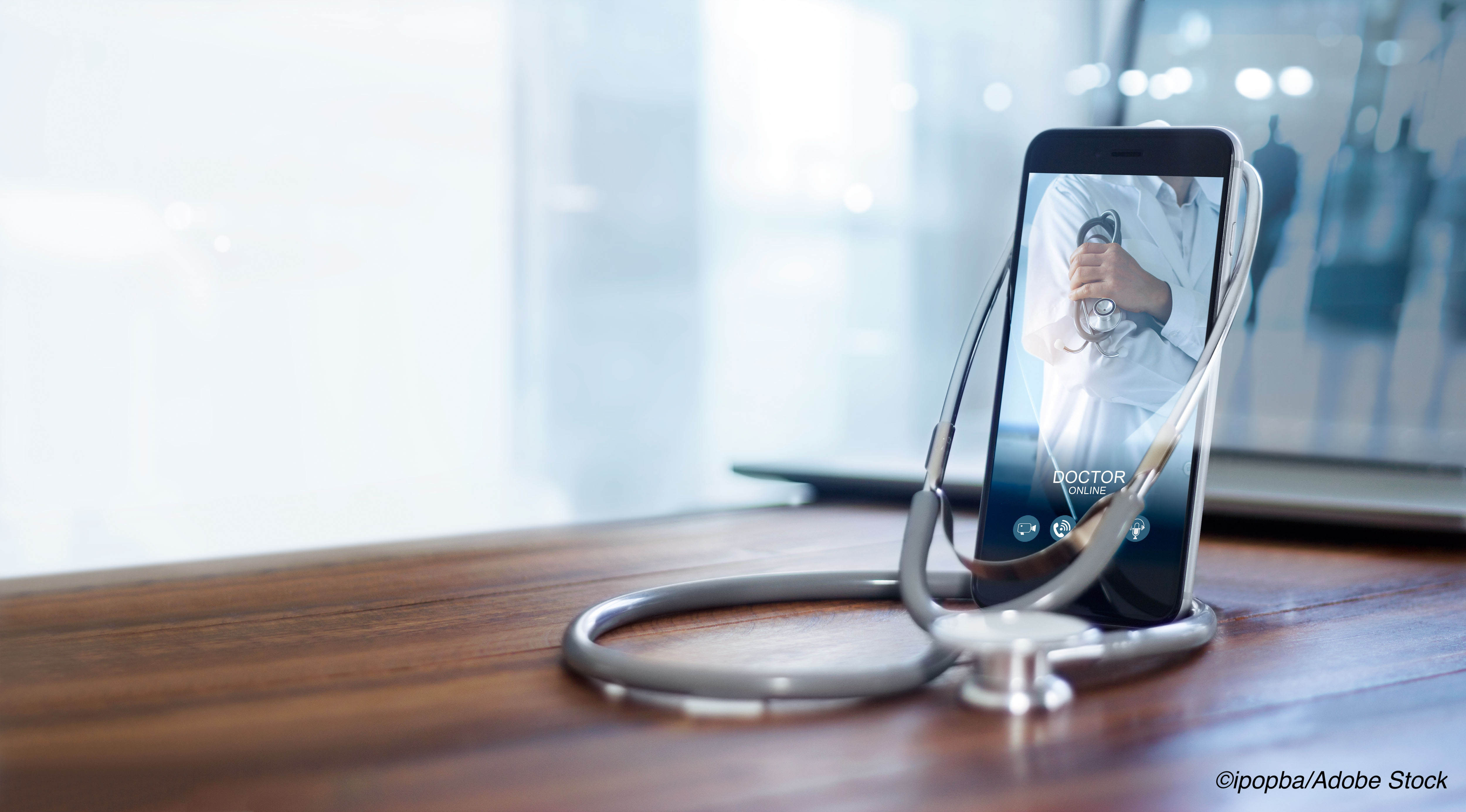 Nearly two-thirds of surveyed U.S. patients on dialysis said they were ready, willing, and able to use their smartphones to make appointments, communicate with healthcare providers, and obtain lab results, researchers reported.
Nearly two-thirds of surveyed U.S. patients on dialysis said they were ready, willing, and able to use their smartphones to make appointments, communicate with healthcare providers, and obtain lab results, researchers reported.
Among more than 900 patients with kidney failure who completed the survey, 60% expressed an interest in using mobile health to learn or engage with their healthcare, according to Wael F. Hussein, MD, of Satellite Healthcare in San Jose, Calif., and co-authors.
Additionally, more of the home dialysis respondents were technologically mobile health ready versus the in-center hemodialysis group (78% vs 67%, P<0.001), they reported in CJASN.
And home dialysis respondents had a higher proportion of proficient users compared with those in the in-center group (77% versus 66%, respectively), while also expressing a greater interest in using mobile health (67% versus 56%), the authors noted.
“This important finding can stimulate the use of mobile health in home dialysis given that the vast majority of home dialysis nurses believe its use would improve care, decrease travel time, and enhance home dialysis patient-centered care,” they stated.
The presidential “Executive Order on Advancing American Kidney Health” was launched in 2019, with the Center for Medicare and Medicaid Innovation (CMMI) releasing a proposed required payment model, and four optional payment models, to adjust payment incentives to encourage preventative kidney care, home dialysis, and kidney transplants.
The “groundbreaking policy strategy for kidney patient health creating the framework for medical breakthroughs such as mHealth devices, it will mark the start of era where we will see the development of more medical devices and technology in the fight against kidney disease,” according to a CJASN “Patient Voice” editorial accompanying the study.
The “Patient Voice” editorial also states that “Kidney patients are… so far behind in advanced technology to assist in improving their health that having the use of a smartphone at their fingertips to assist in monitoring their health would make a remarkable difference.”
Dialysis patients have been particularly hard hit by lockdowns and stay-at-home orders during the pandemic, according to a trio of reports — one from France, one from Europe, and one from New York — in the October 2020 Kidney International. “Patients on dialysis are at extremely high risk should they develop Covid-19, with short-term mortality of 20% or higher…it is imperative that the kidney community intervenes to reduce the threat of Covid-19 in this vulnerable population by focusing on modifiable factors…” according to an accompanying commentary.
Hussein’s group administered a cross-sectional survey in Nov. and Dec. 2019 to English and Spanish-speaking dialysis patients from 21 in-center hemodialysis and 14 home dialysis centers in California (81% of study population), Texas, and Tennessee.
Participants (n=949) answered a 30-item questionnaire that assessed mobile health technological readiness, proficiency, and mobile health motivational readiness.
Among these participants (32% ages 45 to 60; 37% female; 32% Latinx ethnicity; 19% Black), 81% said they owned smartphones or other Internet-capable devices (laptop; tablet), 72% reported using the Internet, and 70% reported intermediate or advanced mobile health proficiency.
Over half of the patients declared some college education (57%), while 70% were public insurance beneficiaries, and 82% said they were not employed.
The most common reasons for mobile health-related activities were healthcare personnel communication (56%), appointment reminders (56%), laboratory result access (55%), scheduling appointments (53%), statistics and information on kidney disease and dialysis (50%), billing purposes (46%), and medication tracking (45%).
The survey also revealed that mobile health readiness was independently associated with younger age, higher education, employment, and non-Latinx ethnicity. The authors suggested that targeted mobile health interventions to the characteristic demographics of the dialysis population could be most effective, rather than a one-size-fits-all approach.
Study limitations included the cross-sectional design, so causation cannot be shown between patient variables and mobile health readiness or proficiency. Also, convenience sampling may have been a source of bias.
In another editorial accompanying the study, Karandeep Singh, MD, MMSc, of the University of Michigan Medical School in Ann Arbor, offered a practical application of the findings. “How to engage these patients more effectively can perhaps be summed up with the following advice: The best engagement medium is the one that’s with patients,” he stated.
Singh suggested a three-step approach for the nephrology professional community to further embrace mobile health capabilities:
- Kidney disease is generally not a standalone condition; many patients experience other comorbidities. As such, they may be using applications to manage these diseases and some of these may be appropriate for use for a patient’s kidney disease and dialysis.
- Applications should meet the needs of both patients and nephrologists.
- Applications should be available in multiple languages as well as being family and caregiver friendly, in case there is a need to access or enter information for the patient.
“Patients are ready to engage with us,” he stressed. “They have their smartphones ready. They are motivated. The question for the nephrology community is this: Are we ready to engage them using the medium most readily accessible to patients?”
-
Among 949 U.S. adults with kidney failure on dialysis, 60% reported mobile health readiness, proficiency, and motivation.
-
Home dialysis respondents had a higher proportion of proficient users compared with those in the in-center group while also expressing a greater interest in using mobile health.
Shalmali Pal, Contributing Writer, BreakingMED™
All co-authors are employees of Satellite Healthcare.
Singh reports employment with University of Michigan, receiving honoraria from Harvard Medical School, and receiving salary support from Blue Cross Blue Shield of Michigan for work done on the Michigan Urological Surgery Improvement Collaborative.
Cat ID: 127
Topic ID: 81,127,730,127,472,192,925

